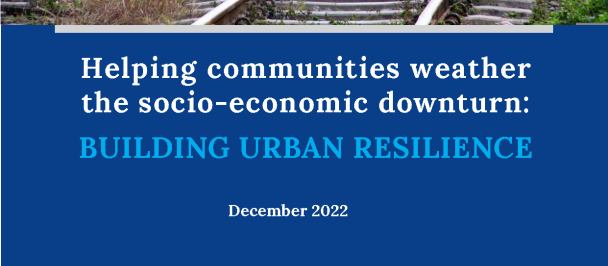Op-ed by: U Ohn Win, Union Minister, Ministry of Natural Resources and Environmental Conservation, and Mr. Peter Batchelor, UNDP Myanmar Resident Representative
Mangrove forest in Tanintharyi region Photo Credit: Singay Dorji
Myanmar faces many development challenges, but climate change presents the greatest challenge of all. And while the impacts of climate change are felt in many ways, it is the threat to the country’s future development that makes it so significant.
Myanmar’s geographic location and incredible physical diversity means climate change takes many forms – in the dry zone, temperatures are increasing and droughts becoming more prevalent, while the coastal zone remains at constant risk from intensifying cyclones. And extreme flooding in the current wet season has already seen over 190,000 people seek emergency shelter, with the damage to homes, schools and farms compounding the impact of last year’s floods, and those from the year before.
The possibility of more intense and more frequent climatic events is already impacting Myanmar. The country is already one of the most vulnerable in the world to such extreme weather events. With the memories of 2008’s catastrophic Cyclone Nargis still vivid, the development gains that have been made in recent times remain highly susceptible to such risks. Even without a single Nargis-scale event, the loss and damage caused by floods, landslides and droughts in recent years runs into the billions of US dollars, not to mention the deaths and turmoil for people’s lives. The need to prepare for, respond to, and recover from, these natural disasters costs time and resources that could otherwise be spent on more pressing development priorities.
There is no question that Myanmar must work with the international community to slow down and reverse global warming, while also building its resilience by adapting to the reality of a changing climate.
The Government of the Republic of the Union of Myanmar recognizes that a clean environment, with healthy and functioning ecosystems, is the foundation upon which the country’s social, cultural and economic development must be sustained. It has therefore committed to a national development framework that incorporates the notion of environmental sustainability for future generations by systematically embedding environmental and climate considerations into all future policies and projects. The Myanmar Sustainable Development Plan (2018-2030) has committed Myanmar to a climate-sensitive development pathway and is complemented by the new National Environmental Policy and Myanmar Climate Change Policy, which were both recently launched by the President. Both policies have benefitted from technical support from international development partners like UNDP and extensive public consultations across Myanmar.
Together, these new policies set a vision for Myanmar as a climate-resilient, low-carbon society that is sustainable, prosperous and inclusive, for the well-being of present and future generations. They are also the basis for Myanmar’s implementation of the Paris Agreement to help keep global temperature increases to 1.5 degrees Celsius above pre-industrial levels.
Myanmar’s ambitious approach to reducing greenhouse gas emissions includes reversing the decline of the country’s forests. For example, the Government has committed 500 million US dollars over 10 years for the Myanmar Rehabilitation and Reforestation Programme. Nature-based solutions, such as protecting coastal mangrove forests, can help mitigate climate change by storing huge amounts of carbon dioxide while also building natural barriers to reduce the impact of cyclones and storm surges on coastal communities.
The energy sector contributes two-thirds of greenhouse gas emissions in the Asia-Pacific region. Therefore, energy development in Myanmar must be climate smart and cannot ignore the sector’s changing economic outlook. The Government is committed to increasing the use of renewable energy while helping provide electricity to the millions of people who still lack reliable access. New forms of renewable energy – including solar and biomass – will contribute 9% of the country’s energy mix by 2030. The distribution of fuel-efficient cookstoves is being rapidly expanded to 5 million households – this will improve people’s health, while also helping avoid deforestation from people gathering firewood.
Myanmar’s private sector has a vital role to play in responding to climate change, but this also presents great opportunities as the economy expands. Disruptive green technology and innovation will help us accelerate towards a low carbon economy. The government will continue promoting green businesses and aligning incentives for the private sector to introduce low carbon technologies.
To empower younger generations with the knowledge, skills and attitudes to prosper in 21st century Myanmar, climate change must inform the strengthening of the education system – in the curriculum, as well as by developing climate-resilient schools.
Such approaches also show that what is good for the climate is also good for our country’s development and the lives of our people.
Myanmar is ready to be part of the climate change solution at this month’s United Nations Climate Action Summit, to be held in New York on 23 September, 2019. The Government is continuously intensifying its efforts, but does need international support from partners like UNDP. Technological know-how is needed to support actions on the ground, such as in the form of affordable renewable energy technologies. Finance is needed to support investments in human resources and innovative solutions. And training and technical assistance is needed to strengthen the capacities of all players – governments, communities and the private sector.
The Climate Action Summit in New York will be a critical forum for global leaders to come together and present strong new actions to reverse climate change. It is also an opportunity to recognize the valuable efforts of developing countries like Myanmar, and to redouble support for countries pursuing sustainable, low-carbon development pathways.
The world is now in a desperate race against climate change. Strong and urgent action, both internationally and locally, is critical to protecting Myanmar’s current and future development. We must all act together if we are to win this race and ensure a sustainable future for the world and for Myanmar and its people.

 Locations
Locations


